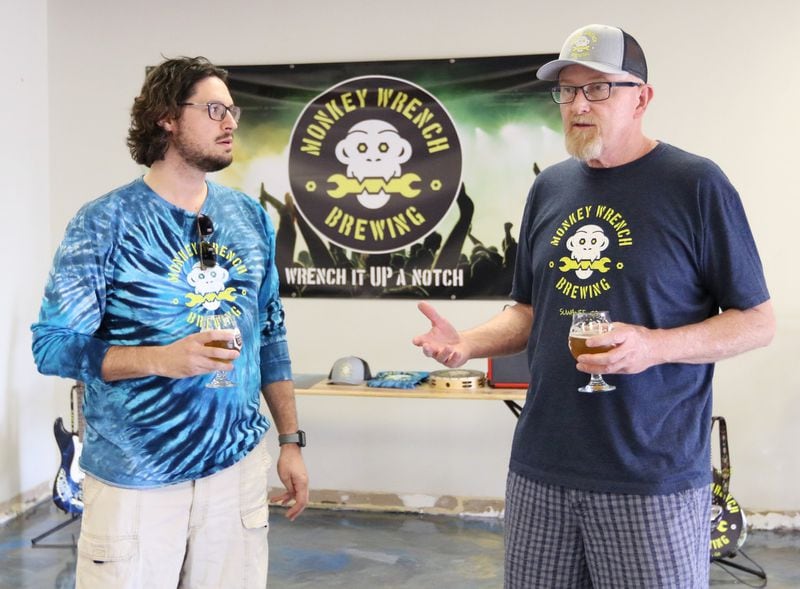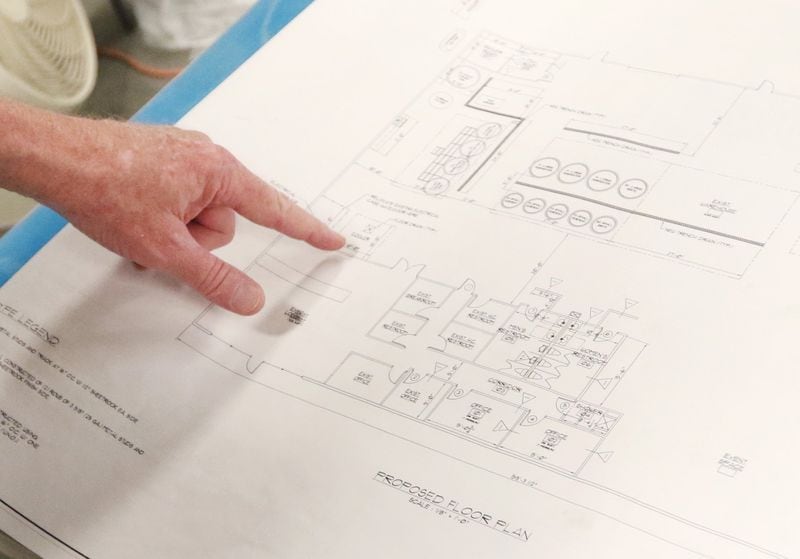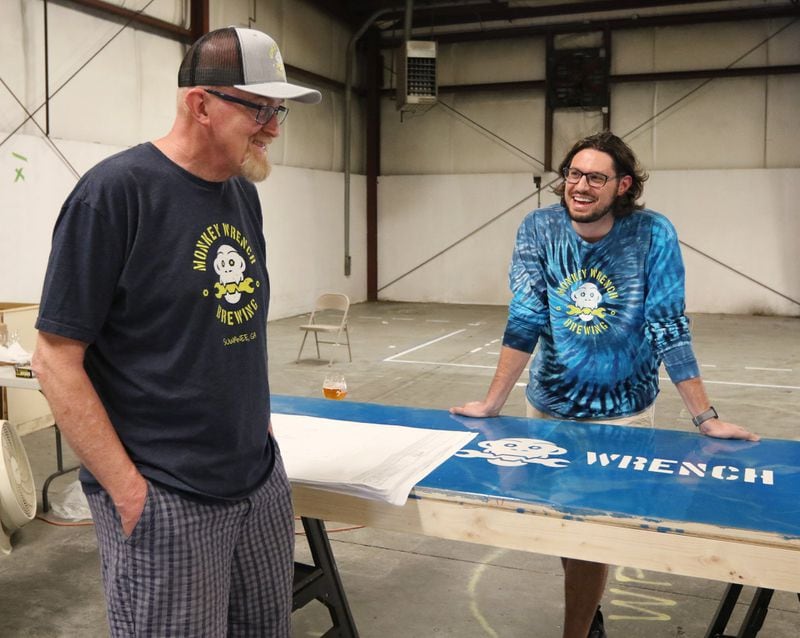The future home of Monkey Wrench Brewing isn't much to look at. One dull, red-brick warehouse tucked away in a Suwanee business park.
But the scene developing inside — the funky new floors and the shiny silver tanks waiting to be put into action — is one that, thanks to a recent change in Gwinnett County’s local ordinances, could be repeated many times in the coming years.
Georgia’s second-largest county recently adopted new legal definitions and eased zoning regulations for microbreweries and brewpubs, potentially opening the door for a new boom of Gwinnett-brewed beer — and putting the community in a better position to cash in on an industry that’s already worth more than $1 billion to Georgia.
“It’s absolutely something that was a need for the county,” said Nick Masino, Gwinnett’s top economic development recruiter, said of the county’s ordinance changes. “This is a hot trend and they jumped on it. I think the timing’s great.”
The future home of Monkey Wrench, which founder Wayne Baxter and friend Joe Dreher have been dreaming up for a better part of a decade, will be up and running in a few months.
“We’ve been talking the talk for a while,” Dreher said. “Now we’re walking the talk.”
Things have been a little tougher in unincorporated parts of Gwinnett, which make up three-fourths of the county. But Monkey Wrench and its small group of predecessors foreshadow what could be coming soon for this type of economic development.
More competitive
Monkey Wrench is not Gwinnett County’s first homegrown brewery.
Slow Pour Brewing Company earned that crown when it opened up shop near downtown Lawrenceville in Sept. 2017. Good Word Brewing and Public House opened in Duluth a few months later. At least a couple more are in the hopper, including one that hopes to open this fall on the other side of Suwanee.
But all of those businesses are located inside Gwinnett cities, which make their own rules and can generally be more nimble in adapting to market changes. Until last month, Gwinnett regulations greatly hindered the chances of microbreweries and brewpubs popping up in unincorporated areas.
The way local ordinances were written didn’t distinguish between large-scale alcoholic beverage production plants and much smaller microbreweries and brewpubs, meaning the latter were only permitted under certain industrial zonings. Those zonings aren’t especially appealing for consumer-facing businesses.
Ordinance amendments approved March 26 by Gwinnett’s Board of Commissioners, however, include precise definitions for brewpubs and microbreweries — and make them permissible under a number of new commercial and mixed-use zoning classifications.
That means more places where spots like Monkey Wrench and crew can pop up and have a better chance to thrive.
“I don’t personally like beer, but I don’t think we should be preventing microbreweries and brewpubs in unincorporated Gwinnett where appropriate,” said District 2 County Commissioner Ben Ku. “I’m glad staff is looking at improving our ordinances to be more modern and flexible and competitive.”
Craft beer was a $1.6 billion industry in Georgia in 2016 (even before state laws were loosened in 2017 to allow more direct on-site sales at breweries). The state reportedly had 21 craft breweries in 2011 but now has 69, according to the national Brewers Association.
While the raw numbers have more than tripled, that still represents less than one craft brewery per 100,000 drinking-age adults, according to the association — ranking Georgia second-to-last in a list of the 50 states and the District of Columbia.
There remains plenty of room for growth.
“The appetite for this has always been here,” said John Reynolds, the co-founder of Lawrenceville’s Slow Pour. “We’re not generating anything new.”
Baxter and Dreher will tell you the same. Separated in age by more than three decades, they met years ago through a chance encounter at a neighborhood tennis match. They struck up a friendship over a jug of beer and started dreaming.
Monkey Wrench was incorporated way back in 2011 and it’s taken some time to get to this point, sometimes intentionally and sometimes not. But come July or August, the old warehouse tucked away on Martin Farm Road should be up and brewing.
“This guy, it’s just like running through his veins,” Dreher said, pointing to Baxter. “The product has always been there, so I’m really excited to scale it up. We’ve got Wayne a big playground here.”
Gwinnett County hopes it’s opened up an even bigger playground for more folks like him.
New Gwinnett beer guidelines
Under Gwinnett County’s new guidelines, a brewpub is defined as “an eating establishment in which beer or malt beverages are manufactured or brewed … for on-site consumption and retail sales directly to restaurant patrons.” A microbrewery must sell only beverages that are produced on-site and has to be under 30,000 square feet.
Both facilities will now be permissible under a variety of commercial and mixed-use zoning classifications throughout unincorporated Gwinnett County. Previous guidelines lumped brewpubs and microbreweries in with large-scale production plants and restricted them to industrial areas.









